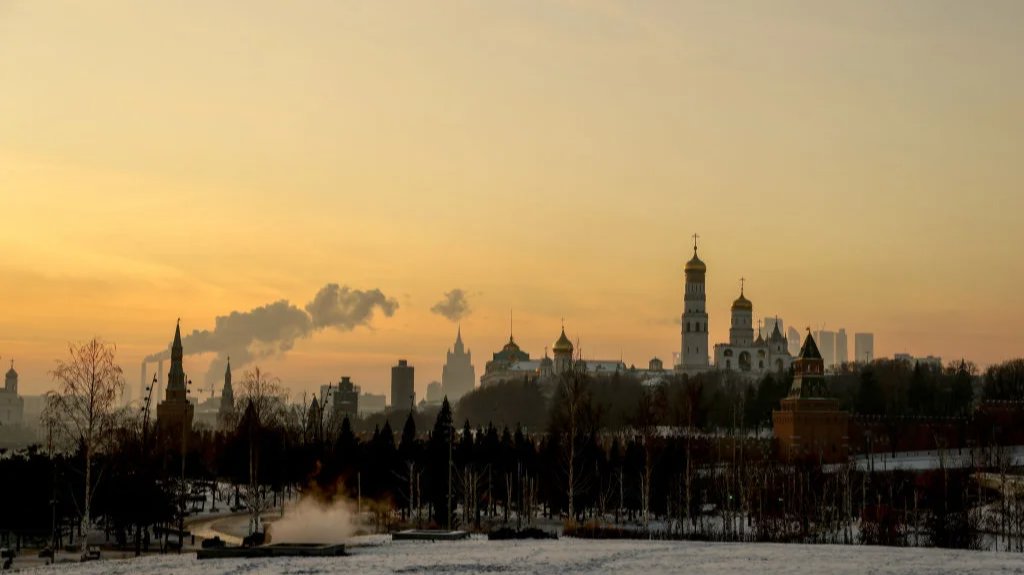On 10 March, Ukrainian President Volodymyr Zelensky instructed Prime Minister Denys Shmyhal to “examine in detail” a petition to change the official name of Russia used in Ukraine to Muscovy. The country’s UN envoy Serhiy Kislitsa mentioned back in November that Kyiv was considering this move. This article shows that the politics of symbols and politicisation of the past does not just refer to the 20th and 19th centuries, but goes beyond that, to the 16th and 17th centuries.
The word Muscovy (also known as Moscovia) emerged between the 15th and 16th centuries in notes of European writers and spread relatively quickly. It can be observed in various texts and geographical maps. Even though the term Muscovy was never used domestically, phrases like “the Moscow state”, “the Moscow Tsardom”, and “the Moscow lands” were accepted inside Russia in the 16th century and especially in the 17th century. They were used as synonyms for the “Russian state”.
One theory suggests that Muscovy is a pejorative term invented by Europeans (primarily Poles) to discredit Russia. In reality, people who wrote and spoke about “the Moscow state” were quite ardently “pro-Russia”.
At the same time, the Polish–Lithuanian Commonwealth between the 16th and 17th centuries formed an impression of “Ruthenians” and “Muscovites” as two different groups of people, while the term “Ruthenian” was used to describe the Eastern Slavic people of the country. For instance, a Ruthenian Voivodeship with Lviv as its capital existed in Poland. In the 19th century, Polish historian Franciszek Duchiński reinvented this optics which was later picked up by Ukrainian nationalists who believed that they needed to overcome the concept of “Muscovy”.
The current aim to highlight this issue has two main dimensions. On the one hand, it represents the battle for the symbolic heritage of Kyivan Rus. Russia is also a party to this fight: the most notable example is the Grand Prince Vladimir monument erected in the centre of Moscow in 2017.
Symbolically speaking, Muscovy has nothing to do with Kyivan Rus, unlike Russia.
On the other hand, Muscovy has different connotations attached to it. Russia is largely associated with the Russian Empire that existed in the 18th-19th centuries. Norwegian political scientist and historian Iver Neumann notes that “the name ‘Russia’ and Russia as a power entered the European system of states simultaneously” — after the proclamation of the Russian Empire in 1721.
Even though there were many texts written about the “Russian barbarism”, Russia’s international status was radically different to that of Muscovy. Russia was a party to the Vienna Congress in 1814-1815 — a conference that laid down the foundations of the 19th century world order — a member of the Holy Alliance — a coalition that united all major European powers — and Entente Cordiale — a trilateral union between Russia, France, and the UK formed on the eve of WWI.
The Russian elite at the time was generally integrated into the European one: literature, music, art, and ballet were considered Russian in origin. This is strikingly different from the day-to-day impressions of Muscovy dating back to the 16th-17th centuries. François Rabelais serves as a clear example of this attitude: he classified “Muscovites” as infidels and put “Muscovites, Indians, Persians, and troglodytes” in the same category.
The “Muscovy proposition” targets three main goals. Firstly, it is the desire to position itself as one “true Rus”.
Ukrainian political commentator Oleksiy Arestovych suggested renaming Ukraine as “Rus-Ukraine” back in 2021, and even though that was partially trolling, this vision is rooted in the history of the Ukrainian nationalism. Secondly, it represents the ambition to strip the modern-day Russian Federation of the great power status linked to the name Russia. Thirdly, this is an attempt to make the Russian Federation “exotic” and symbolically throw it out of Europe, because Muscovy back then was a much more “barbaric” and “strange” country for Europeans than the Russian Empire.
Vladimir Putin’s musings about Ukraine being a creation of Lenin and his associates has opened the Pandora’s box of political references to the past on the state level. The “Muscovy proposition” shows that it’s not just the Kremlin that can play this game.
Join us in rebuilding Novaya Gazeta Europe
The Russian government has banned independent media. We were forced to leave our country in order to keep doing our job, telling our readers about what is going on Russia, Ukraine and Europe.
We will continue fighting against warfare and dictatorship. We believe that freedom of speech is the most efficient antidote against tyranny. Support us financially to help us fight for peace and freedom.
By clicking the Support button, you agree to the processing of your personal data.
To cancel a regular donation, please write to [email protected]

